In recent years, the field of medical research has seen a rapid increase in the use of artificial intelligence (AI) tools. With the ability to analyze vast amounts of data, identify patterns, and make predictions, AI has the potential to revolutionize medicine and improve patient outcomes. From natural language processing algorithms to machine learning techniques, there are many AI tools available that can aid in the medical research process.
In this blog, we will explore some of the best AI tools for medical research. We'll discuss their features, benefits, and how they can be used to improve medical research. Whether you're a researcher, a healthcare professional, or simply interested in the latest advances in medical technology, this blog will provide you with valuable insights into the exciting world of AI in medical research.
IBM Watson Health

IBM Watson Health is an AI tool that uses natural language processing and machine learning to analyze large amounts of healthcare data and assist clinicians and researchers in making informed decisions. The tool can be used for a variety of applications, including clinical decision support, patient monitoring, and drug discovery. Watson Health's ability to process vast amounts of data quickly and accurately makes it a valuable tool for medical research, as it can identify patterns and trends that may not be immediately apparent to human researchers. Additionally, Watson Health is designed to be user-friendly, making it accessible to clinicians and researchers with varying levels of technical expertise.
Pros
Cons
Overall Rank
Google Cloud Healthcare API
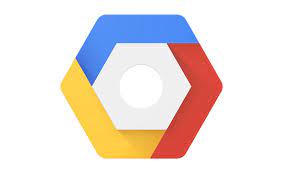
Google Cloud Healthcare API is a powerful tool that allows healthcare organizations to securely store, process, and analyze patient health data. The API supports multiple healthcare data standards and can integrate with various electronic health record (EHR) systems. With its artificial intelligence (AI) capabilities, the tool can help healthcare providers to gain valuable insights from patient data, improve diagnosis accuracy, and enhance clinical workflows. The API can also be used to build custom healthcare applications, such as telemedicine platforms and population health management systems. By leveraging the power of Google Cloud, healthcare organizations can streamline their operations, improve patient outcomes, and reduce costs.
Pros
Cons
Overall Rank
NVIDIA Clara
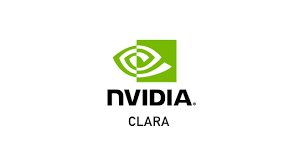
NVIDIA Clara is an AI-assisted toolkit that enables developers to build and deploy intelligent medical imaging applications. The toolkit includes pre-trained models, tools for data processing, and APIs for integrating with other systems. With Clara, developers can create applications that help clinicians in diagnosing and treating patients, improving patient outcomes and reducing healthcare costs. Clara also includes features for data privacy and security, ensuring that patient data is kept safe and confidential.
Pros
Cons
Overall Rank
Amazon Comprehend Medical

Amazon Comprehend Medical is an AI-powered natural language processing tool that analyzes unstructured medical data such as doctor's notes, clinical trial reports, and patient health records. With its ability to identify medical terms, entities, and relationships, Comprehend Medical can extract meaningful insights from vast amounts of medical data in a matter of minutes. This tool helps healthcare providers make informed decisions, improve patient outcomes, and increase operational efficiency. Comprehend Medical's pre-trained models are customizable, making it possible for healthcare organizations to tailor the tool to their specific needs. Moreover, it is HIPAA compliant, ensuring patient data privacy and security.
Pros
Cons
Overall Rank
GE Healthcare
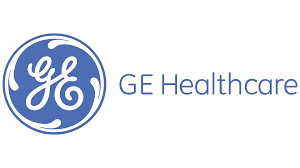
GE Healthcare has developed an AI-powered tool that is aimed at reducing the time and effort required to interpret medical images. The tool is designed to assist radiologists in analyzing computed tomography (CT) scans of patients with traumatic brain injuries. Using AI algorithms, the tool can automatically identify areas of the brain that have suffered injury and provide a severity score for the injury. The system also generates a heat map of the brain, highlighting the areas that have been affected by the injury. This technology can significantly improve the accuracy and speed of diagnoses, enabling healthcare professionals to provide more effective treatment to patients.
Pros
Cons
Overall Rank
Microsoft Healthcare Bot
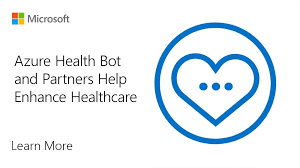
Microsoft Healthcare Bot is an AI-powered tool that offers intelligent and conversational virtual healthcare assistance to patients. This innovative tool utilizes natural language processing (NLP) and machine learning (ML) techniques to enable personalized patient care through automated interactions with patients. Healthcare providers can use this bot to reduce their workload, improve patient engagement, and provide quick and efficient healthcare services. Patients can use it to ask questions about their symptoms, receive medical advice, schedule appointments, and get information about medical procedures, all from the comfort of their homes. This AI tool is built on a secure and compliant platform that ensures the confidentiality of patient information and meets the regulatory requirements of the healthcare industry.
Pros
Cons
Overall Rank
Arterys
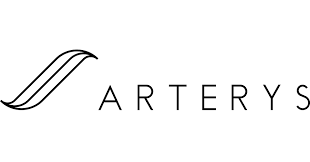
Arterys is an AI-powered medical imaging platform that provides physicians with real-time analytics to help diagnose and treat patients more efficiently. The platform utilizes machine learning algorithms to analyze and interpret medical images, such as MRI and CT scans, and provide detailed insights into the patient's condition. With Arterys, physicians can quickly and accurately diagnose and treat patients, leading to better outcomes and improved patient care. The platform is also secure and HIPAA-compliant, ensuring patient data is protected and kept confidential.
Pros
Cons
Overall Rank
Prognos

Prognos is an AI-driven platform that helps healthcare companies make better decisions by predicting disease progression and patient outcomes. The platform uses a vast array of data sources, including clinical trials, electronic health records, and claims data, to generate insights that can be used to improve patient care and treatment. Prognos' unique approach to data analysis allows it to identify patterns and trends that might otherwise go unnoticed, enabling healthcare organizations to make more informed decisions and ultimately improve patient outcomes. Additionally, Prognos' machine learning algorithms are continually learning and adapting to new data, ensuring that the platform remains up-to-date and relevant in an ever-evolving healthcare landscape.
Pros
Cons
Overall Rank
Insilico Medicine
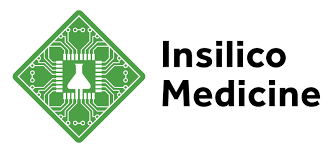
Insilico Medicine is a cutting-edge AI tool that is revolutionizing drug discovery and aging research. By using advanced deep learning algorithms, it can quickly analyze vast amounts of biological data and predict the efficacy and safety of potential drug candidates. The tool also leverages AI to develop new treatments for age-related diseases, including cancer, Alzheimer's, and Parkinson's. With its ability to accelerate drug discovery and improve the success rate of clinical trials, Insilico Medicine has the potential to transform the pharmaceutical industry and improve the lives of millions of people around the world.
Pros
Cons
Overall Rank
CloudMinds Healthcare

CloudMinds Healthcare is an AI-powered tool that aims to revolutionize the healthcare industry by improving patient care, reducing costs, and increasing operational efficiency. It utilizes the power of cloud computing, machine learning, and natural language processing to provide intelligent clinical decision support to healthcare providers. The tool can analyze vast amounts of data and provide accurate diagnoses and treatment recommendations in real-time. Moreover, CloudMinds Healthcare can monitor patients remotely, alert healthcare providers of any concerning symptoms, and predict potential health risks before they escalate. The tool also offers a personalized approach to patient care by using patient data to tailor treatment plans to meet individual needs. Overall, CloudMinds Healthcare is a promising technology that has the potential to transform the way healthcare is delivered.
Pros
Cons
Overall Rank
Ayasdi

Ayasdi is a cutting-edge AI tool that leverages topological data analysis (TDA) to help organizations gain insights from complex data sets. This powerful platform offers a variety of features such as automated data ingestion, data cleaning, and exploratory data analysis. Ayasdi's TDA approach enables users to analyze data across multiple dimensions and uncover hidden patterns that may not be evident through traditional statistical methods. Additionally, the platform allows for the creation of interactive visualizations and provides machine learning algorithms for predictive analytics. Overall, Ayasdi is an excellent tool for organizations seeking to gain deeper insights from complex data sets.
Pros
Cons
Overall Rank
BioSymetrics

BioSymetrics is a machine learning company that provides an AI tool for the healthcare industry. The tool, called Augusta, uses advanced analytics and machine learning algorithms to extract insights from complex biomedical data. Augusta can integrate various types of data, including genomics, clinical data, and imaging data, to provide a comprehensive view of patients' health status. The tool also enables researchers to identify novel biomarkers, discover new therapeutic targets, and develop personalized treatment plans. Moreover, Augusta's user-friendly interface makes it accessible to researchers and clinicians without extensive data science knowledge.
Pros
Cons
Overall Rank
Enlitic

Enlitic is an AI-powered medical tool that uses deep learning algorithms to help doctors make more accurate diagnoses. The platform analyzes medical images such as X-rays, CT scans, and MRIs to identify potential abnormalities that may be difficult to spot with the human eye. Enlitic's technology has been shown to improve diagnostic accuracy and reduce errors in a variety of medical specialties, including radiology and pathology. With its ability to analyze vast amounts of medical data quickly and accurately, Enlitic has the potential to transform the way healthcare providers deliver care and improve patient outcomes.
Pros
Cons
Overall Rank
PathAI
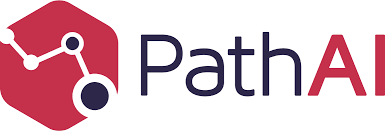
PathAI is an artificial intelligence tool designed to aid pathologists in diagnosing and treating cancer. It uses deep learning algorithms to analyze pathology images and provides accurate and efficient diagnoses, leading to better patient outcomes. The tool can identify subtle differences in cancer cells that may be missed by the human eye, allowing for earlier detection and personalized treatment plans. PathAI also helps to reduce variability in diagnoses and improve the overall efficiency of pathology workflows. With its ability to quickly analyze vast amounts of data, PathAI has the potential to revolutionize the field of pathology and improve cancer diagnosis and treatment.
Pros
Cons
Overall Rank
In conclusion, the field of medical research is constantly evolving, and with the advent of AI technology, researchers now have access to a vast array of powerful tools to aid in their work. AI tools can help identify patterns, make predictions, and assist in diagnosing diseases. They can also help to speed up the drug discovery process and improve patient outcomes. Among the best AI tools for medical research are natural language processing algorithms, which can help to analyze vast amounts of textual data, such as medical journals, case reports, and patient records. Another valuable tool is machine learning, which can help identify and classify patterns in medical images, such as MRI and CT scans. Overall, the use of AI tools in medical research is still in its infancy, but the potential benefits are immense. With continued research and development, AI has the potential to revolutionize the field of medicine and improve patient outcomes around the world. However, it is important to note that these tools should not replace the expertise and judgment of medical professionals but rather serve as a powerful aid to support their work.
